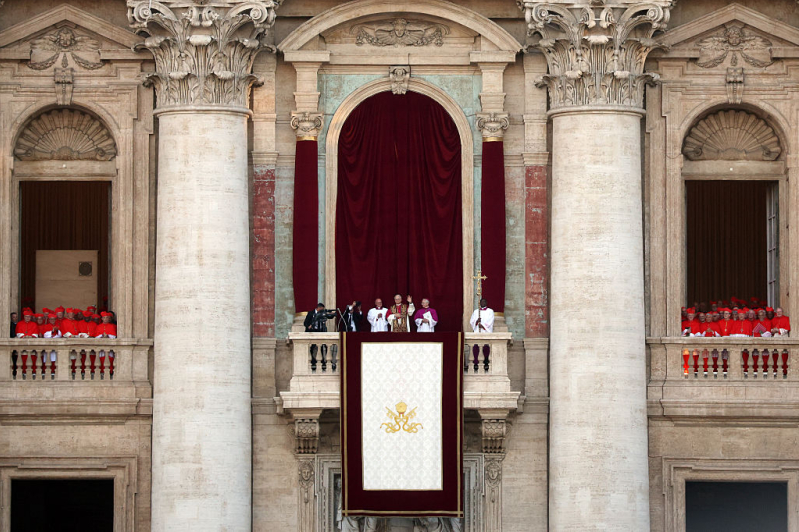
Cardinal Robert Francis Prevost of the United States was elected the 267th pope of the Roman Catholic Church on Thursday, taking the name Pope Leo XIV and becoming the first American to hold the papacy.
Prevost, 69, stepped onto the central balcony of St. Peter’s Basilica to cheers from thousands gathered in St. Peter’s Square, marking the conclusion of a brief conclave that took just four rounds of voting over a little more than 24 hours.
“The fact that it took only four rounds is a clear sign of the unity of the Church,” Italian Cardinal Giuseppe Versaldi said at a Vatican press briefing, according to media reports. The election was even faster than the 2013 conclave that chose Pope Francis.
Pope Leo XIV’s election follows the death of Pope Francis, who passed away last month at age 88. Francis, the first Latin American pope, was widely known for his emphasis on the poor and marginalized, as well as for sparking theological debate among Catholic and evangelical observers regarding his views on controversial cultural issues, among others.
Prevost’s elevation comes as a surprise to those who believed an American pope remained unlikely due to the Vatican’s longstanding caution about U.S. political influence. Yet Prevost’s decades-long ministry abroad and global leadership in the Church helped position him as a unifying candidate, according to some commentators.
Born in Chicago, Prevost was ordained in 1982 and earned a doctorate in canon law in Rome. He spent 20 years as a missionary and bishop in Peru, where he became a naturalized citizen. He later led the Augustinian order and, until Francis’s death, directed the influential Vatican office overseeing bishop appointments worldwide.
However, like many senior church leaders, he has faced criticism over his handling of cases involving priests accused of sexual abuse—an issue that remains one of the Church’s most pressing challenges.
Evangelical leaders and observers will be watching closely to see how Pope Leo XIV’s leadership shapes the future direction of the Roman Catholic Church, particularly in matters of theology, interfaith relations, and public witness.






